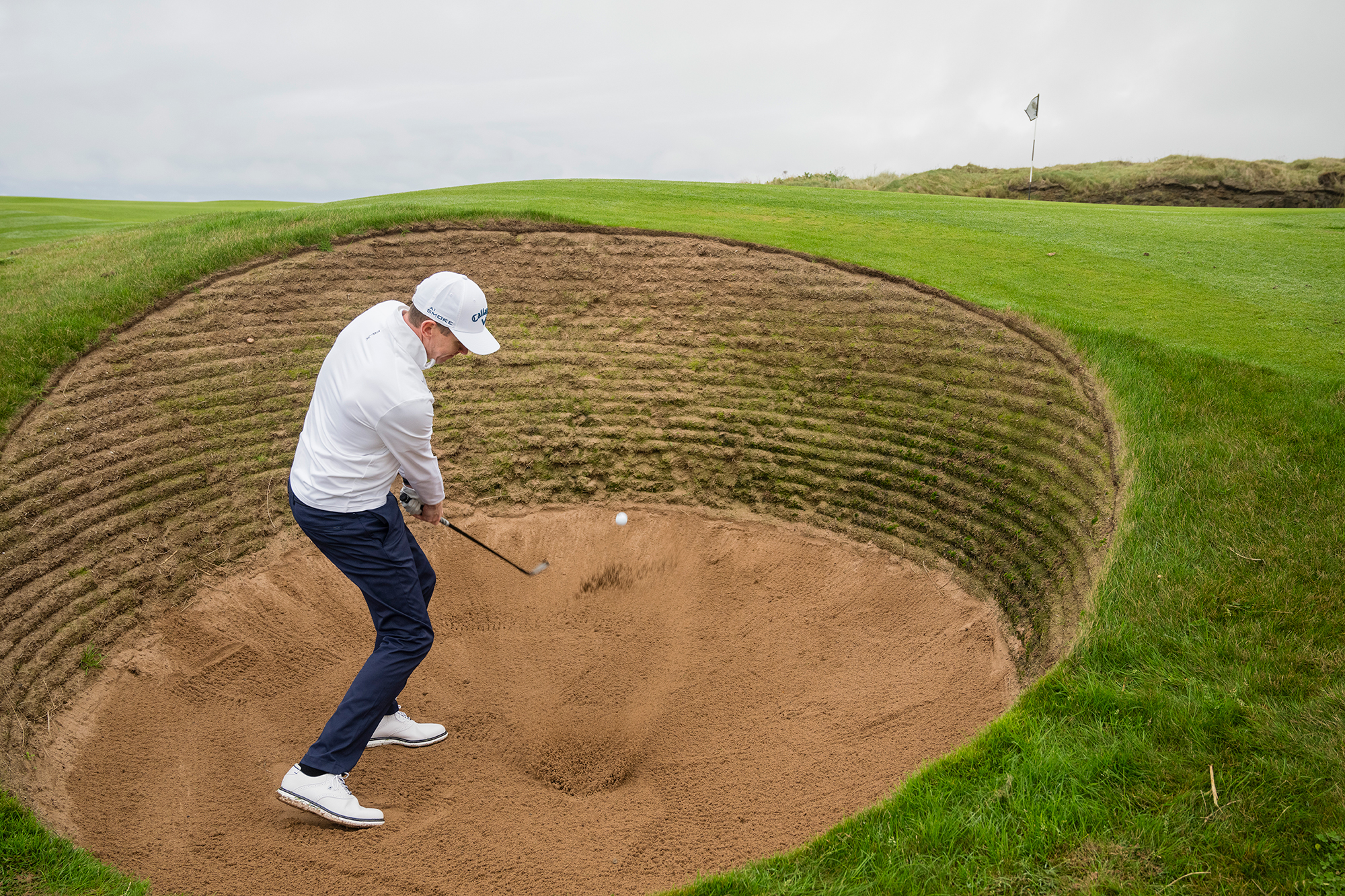
When I think of links golf, and the Open Championship in particular, one of the first images that comes to mind is the beautifully rugged revetted bunkers.
The majestic Royal Portrush hosts the 153rd Open Championship this week, and head pro Gary McNeill outlines in his course guide how pivotal the bunkering could be.
When amateur golfers learn how to hit bunker shots, they don't all have the opportunity to hit out of deep, revetted face sand traps - but I did recently on a trip to Trump Turnberry.
So, in a bid to improve my short game, I asked Golf Monthly Top 50 Coach Ben Emerson to share his expert advice on escaping the sand unscathed and recorded a short video to see how quickly his coaching could help me get out of the bunker...
How To Escape An Open Championship Style Revetted Bunker: The Lesson
Start with a nice wide stance, creating a stable base in the sand by settling your feet into the surface.
When playing out of a deep greenside bunker, I would always teach amateur golfers to get lower at setup, bending the knees and getting the grip of the club lower to the ground.
This allows you to open the club face without worrying about the heel going up into the air or the bounce hurting you too much.
That works because lowering the shaft of the club balances this out and allows you to present more loft - which is essential out of a deep revetted bunker.

The perfect ball position is forward of centre, and it's crucial that your weight distribution heavily favours your lead side throughout the swing.
You don't need to 'help' the ball up in the air, just trust the loft and the fundamentals that you have put in place to support you in hitting this shot.
As you can see in the image above, I like to get the wrist hinge in early and ensure my knuckles move towards the sky to open the club face in the swing.
Avoid de-lofting the club through impact, as that is massively counterproductive, then just commit to the shot.

How Did Baz Get On?
While on an instruction shoot at Trump Turnberry, Ben Emerson gave Baz a quick bunker lesson in the deep, revetted face, greenside bunker of the 10th hole on the Ailsa Course.
As you can see in the video below, his coaching worked wonders on Baz's short game - helping him to escape first time with a well-flighted shot that finished close to the hole.
Since this lesson, Baz has adopted the teaching points whenever he faces a deep bunker shot (irrespective of whether it has a revetted face) and has seen a sharp increase in the amount of times he is able to get up and down from the sand.
What Is A Revetted Bunker?
A revetted bunker is one where sods (grass and the part of the soil beneath it held together by roots or a piece of thin material) are used on top of each other to create a layered effect, which helps to fortify the bunker and play mind games with the golfer.
They are synonymous with Open Championship venues, and links golf courses around the UK, often challenging amateur golfers.







